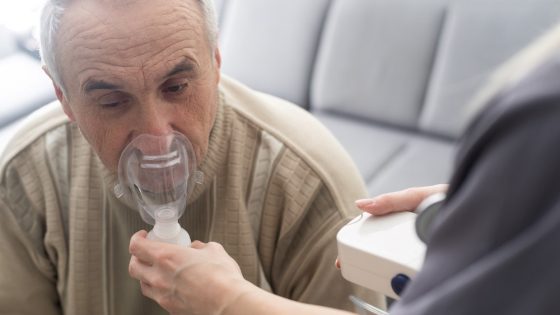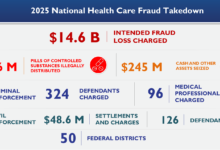Respiratory groups warn of ‘insufficient’ workforce numbers

Better training and recruitment are needed for nurses and other healthcare professionals to deliver high quality integrated respiratory care, according to a new position statement from UK respiratory healthcare organisations.
The joint position statement from the British Thoracic Society (BTS) and the Primary Care Respiratory Society (PCRS) emphasised the importance of integrated care services for managing patients with respiratory illness.
“Far too often practice nurses are put in an impossible position to conduct respiratory reviews after having only a half-day training”
Aleksandra Gawlik-Lipinski
The statement said that respiratory care was “best delivered by a multi-professional team” with patients being seen “by the right person at the right time in the right place”.
However, the statement warned that there were currently “insufficient numbers of healthcare professionals from across disciplines to deliver integrated respiratory services”.
The statement also emphasised the need for high quality, funded education and training for all members of a respiratory health team, as well as opportunities for placement-based learning.
Chair of the BTS nurse specialist advisory group, Aleksandra Gawlik-Lipinski, who is an advanced nurse and paramedic practitioner, highlighted the need for improved training opportunities for primary care nurses in particular.
She said: “I believe that it is pivotal that nurses working in primary care receive appropriate training and education to care for patients with respiratory disease.”
She added: “Far too often practice nurses are put in an impossible position to conduct respiratory reviews after having only a half-day training or update on the condition of interest. That is not an acceptable approach.”
Ms Gawlik-Lipinski said that nurses in primary care formed an essential part of the multidisciplinary team needed to provide good respiratory care, often delivering the majority of asthma and chronic obstructive pulmonary disease (COPD) care in general practice.
But, she added that collaboration with secondary and specialist care services was also important to providing good respiratory care.
“Patients can receive more appropriate and holistic care, at the right time if the communication between healthcare professionals is sustained,” she said.
Ms Gawlik-Lipinski added: “In my personal opinion, nurses, both in primary and secondary care, should also take steps to be more involved in the planning of patient care […and] in quality improvement initiatives as we are in a unique position to implement change and improve patient outcomes.”
Ms Gawlik-Lipinski added that the introduction of the Additional Roles Reimbursement Scheme (ARRS) meant there was more scope for nurses in primary care to take on more specialised clinical roles.
“With the introduction of ARRS there is a bigger potential for the development of more specialised clinicians, and good collaboration between them can improve patient care through access to diagnostics, treatment and appropriate comorbidities management,” Ms Gawlik-Lipinski said.
Ms Gawlik-Lipinski added that nurses delivering respiratory care should familiarise themselves with the ‘Fit to Care’ document published by the PCRS in 2022 which outlines the standards of skills, knowledge and training required to provide high-quality respiratory care.
Chair of the BTS, Dr Paul Walker, said that Integration of respiratory care was “vital” to optimally deliver health and social care in a system that is often disjointed and challenging for patients and carers to navigate.
“Not only is integrated respiratory care more efficient and productive, it encourages sharing of skills, knowledge and insight,” he said.
“This position statement encourages respiratory professionals and teams, across the healthcare landscape, to work better together to improve outcomes for patients,” Dr Walker added.






